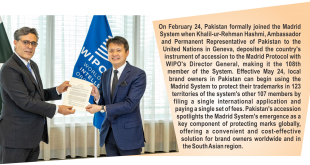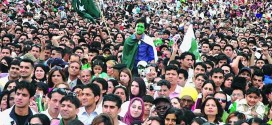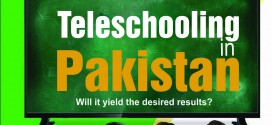By: Shahid Javed Burki
Colonialism brought Europe and the West to Asia and Africa. The tide has now turned. Demographic change and immigration are now bringing Asia and Africa to the West. The West prevailed in the first encounter that took place in the 18th and 19th centuries. The lands it conquered and ruled for centuries didn’t have the military might to keep out the powerful intruder. Technology had given the West the ways to produce steel and gunpowder, and those innovations combined helped it to equip its armies with guns and grenades.
Now, the once conquered are using the West’s remarkable demographic decline to leave behind their countries battered by drought, political conflict and famine to head north and west. The West has begun to resist. It is using politics to build a wall around it. This is quite literally the case in the US with Donald Trump passionately committed to building a “big and beautiful wall” to keep the Hispanics out of his country. His devoted backers are prepared to forgive him a lot as long as he erects that wall. The European wall is more figurative.
In the words of a newspaper reporter covering the France presidential election, “ever since Trump proved last November that anything is possible in the topsy-turvy world of the Western politics, May 7th has been circled in European calendars with a mix of giddy anticipation and existential dread. To right-wing populists, the election in France — a country scarred by unemployment and terrorism — seemed to offer the next big opportunity to remake the post-war global order in their own nationalist, nativist and protectionist image.” The possible electoral triumph of Marine Le Pen was seen by many a third strike after Brexit in June 2016 and the Trump victory a few months later in November. These developments had the potential to doom the EU, Nato and other pillars of the trans-Atlantic alliance.
Has the West’s plunge towards complete isolation been saved by the convincing victory of Emmanuel Macron, who won 66 per cent of the vote against 34 per cent received by Le Pen? Or, is the Macron victory a slight postponement of what seems to be the goal towards which Europe and the US seem headed? “What’s the common ground between Macron and Le Pen?” asks Madani Cheurfa, a professor of politics at Sciences Po Paris. The answer: “There is none. What we’re seeing is historic: a choice between two completely different modes of organising a society. The world is focused on France because it has managed to encapsulate — almost to the point of caricature — the debate under way across the world.” With such divergence in world views, it is difficult to see good governance as the likely outcome.
The rise of the extreme right was made possible by the anger felt by many in both Europe and the US who saw themselves abandoned by the forces of globalisation. Those in distress look for simple, visible and easy to understand reasons for their condition. They found them in immigration on both sides of the Atlantic. Those in Britain who voted for their country to exit the EU were troubled by the open-door policy that was followed under the rule-based alliance among disparate European nations. This brought tens of thousands of East Europeans, in particular migrants from Poland, to Britain’s small, once prosperous but now ailing towns. With that as the diagnosis, the voters in the referendum ordered by then Prime Minister David Cameron opted for leaving the EU. Those who supported the rise of Trump in the US diagnosed job losses to immigration from Mexico and migration of the factories to Mexico and China that employed them. In response, Trump promised the “wall” and the renegotiations of a number of trade deals involving his country. In France, the Le Pen supporters also diagnosed immigration, in their case Muslims from North Africa, as the reason for their situation. The involvement of Muslim migrants in several acts of terrorism gave an Islamophobic tinge to her political movement.
Those in the centre and left of the political spectrum saw these problems from entirely different angles. Migration was not the problem; it was, in fact, part of the solution for West’s aging populations. Much of what led to job losses was the consequence of technological advancement. Robots not migrants were replacing workers in the old industrial towns. The result in the West has a parallel in the Islamic world. In the case of the latter, the conflict of ideas is between those who wish to see their societies modernise against those who want to go back to the institutions created and ideas espoused by those who led the expansion of Islam 1,500 years ago. In the case of Islam, that conflict is expressing itself in the form of extreme violence perpetrated against mostly Muslims.
The political systems in the West, as well as the Islamic world, are in a state of flux. Which direction they take will indicate whether globalisation will continue to drive the world or whether severe conflicts will result from strong adherence to these very different points of view. What is missing at this delicate moment in the world history is high quality leadership that could move the world forward. The party the new French leader has founded is called En Marche! That roughly translates into “Onward”. Maybe, France will point the direction in which the world should go.
Source: https://tribune.com.pk
 Jahangir's World Times First Comprehensive Magazine for students/teachers of competitive exams and general readers as well.
Jahangir's World Times First Comprehensive Magazine for students/teachers of competitive exams and general readers as well.


